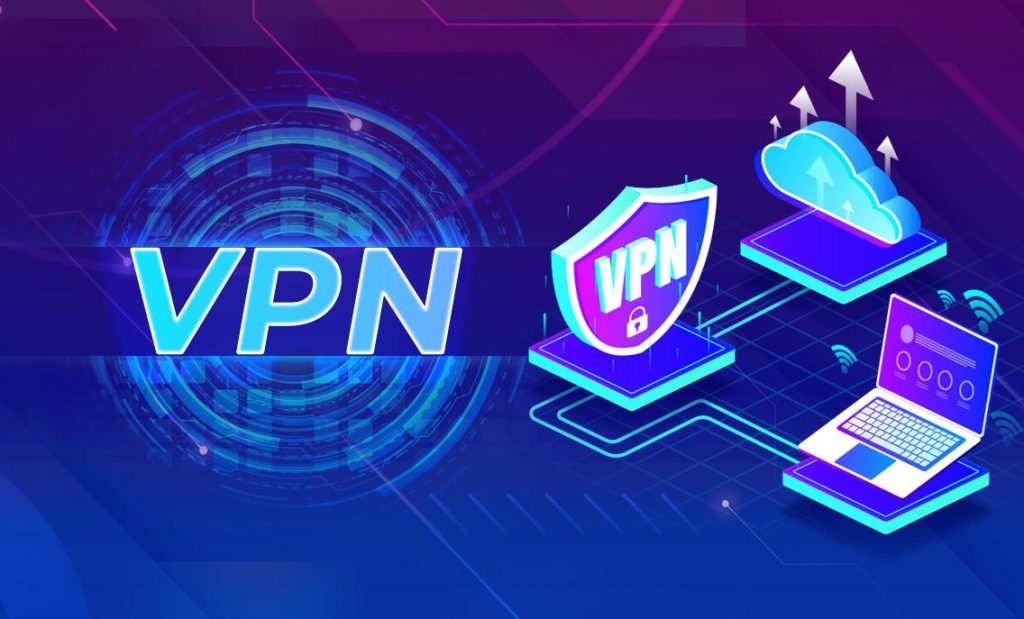Discover the crucial role understanding proxies plays in maintaining internet anonymity. This guide explains how proxies work, their key benefits, and how they help enhance your online privacy and security. Learn how using a proxy can mask your IP address, protect your sensitive data, and keep your online activities private. Understanding proxies is essential for anyone looking to safeguard their identity and ensure secure browsing in today’s digital world.
Understanding Proxies: How They Enhance Online Security and Privacy
In today’s interconnected world, ensuring the safety and privacy of our online activities is more crucial than ever. As cyber threats continue to evolve, individuals and businesses alike are turning to various solutions to safeguard their data and maintain privacy. One such solution is the use of proxy servers, which have proven to be invaluable in enhancing both online security and privacy. In this article, we will delve into what proxies are, how they work, and the key benefits of proxy servers in today’s digital landscape.
What is a Proxy Server?
A proxy server acts as an intermediary between your device and the internet. Instead of your device connecting directly to websites, it routes your requests through the proxy server. This server then communicates with the website on your behalf and sends the information back to your device. Essentially, a proxy masks your direct connection to the internet, making it harder for third parties to track your online behavior.
Proxy servers can be used in several different ways, including to:
-
Mask your IP address.
-
Bypass geographical restrictions and censorship.
-
Enhance internet speed by caching frequently accessed content.
-
Secure sensitive data by encrypting internet traffic.
By using a proxy, users can hide their true identity online, ensuring greater control over their personal information.
How Proxy Servers Work
When you use a proxy server, your computer or device sends a request to the proxy server rather than the website you’re trying to access. The proxy server then forwards the request to the destination website and retrieves the data, before sending it back to you. This system makes it seem as though the proxy server is the one interacting with the website, not your device.
There are several types of proxies, each designed to address different needs and use cases. Understanding the various proxy types is crucial in choosing the right solution for your specific requirements, especially when it comes to improving online security, maintaining anonymity, and managing internet traffic. Let’s explore each of these proxies in more detail:
1. HTTP Proxies
HTTP proxies are the most commonly used type of proxy. They are designed specifically for web traffic, which means they handle requests that are made through HTTP (Hypertext Transfer Protocol). These proxies are typically used for browsing websites and are ideal for situations where you want to access web content anonymously without compromising performance. However, HTTP proxies are limited in that they only handle web traffic, meaning they cannot manage other types of internet activities like streaming or downloading large files. If your goal is simply to hide your IP address while browsing websites or accessing online content, HTTP proxies can be a straightforward and effective solution.
While HTTP proxies are useful for everyday browsing, they don’t provide the added security or versatility needed for more complex internet activities.
2. HTTPS Proxies
HTTPS proxies are essentially a more secure version of HTTP proxies. These proxies are designed to handle web traffic that uses the HTTPS protocol, which is the secure version of HTTP. The key difference is that HTTPS proxies encrypt the data that passes between your device and the proxy server. This encryption adds an extra layer of security, making it much harder for third parties to intercept or manipulate the data you send and receive.
HTTPS proxies are essential when dealing with sensitive information, such as when accessing online banking sites or making secure transactions. They help ensure that your data remains encrypted and protected from cybercriminals or hackers who may be trying to spy on your online activities. For users who prioritize both privacy and security while browsing the web, HTTPS proxies are an ideal choice.
3. SOCKS Proxies
SOCKS proxies are more versatile than HTTP and HTTPS proxies because they can handle a wide variety of internet traffic. While HTTP and HTTPS proxies are limited to web traffic, SOCKS proxies can manage web browsing, email traffic, file transfers, and even applications like instant messaging or gaming. SOCKS proxies work at a lower level of the internet protocol stack and are protocol-agnostic, meaning they are capable of handling nearly any type of traffic.
Because of their flexibility, SOCKS proxies are especially useful for users who need to route different types of traffic through a proxy, such as when accessing multiple types of applications or dealing with large files. This versatility makes SOCKS proxies a popular choice for users who require more than just browsing anonymity, especially in industries that rely on secure data transfers and privacy across different internet activities.
4. Transparent Proxies
Transparent proxies are unique in that they do not hide your IP address. Instead, they are often used for caching purposes or for content filtering. In the case of caching, these proxies store copies of frequently accessed web pages to speed up browsing by reducing the time it takes to load these pages. This can be useful in environments where many users are accessing the same content, such as in large organizations or schools.
Transparent proxies are also commonly employed in networks for filtering content or monitoring internet traffic. For example, an organization might use a transparent proxy to block access to certain websites or restrict online activities based on predefined rules. While they don’t provide the anonymity benefits of other proxies, transparent proxies play a valuable role in optimizing network performance and ensuring that internet usage aligns with organizational policies.
Benefits of Proxy Servers in Enhancing Security and Privacy
1. Enhanced Privacy Protection
One of the primary benefits of proxy servers is their ability to mask your IP address. When you connect to the internet through a proxy, your true IP address is hidden behind the proxy server’s address. This makes it difficult for websites, advertisers, and hackers to track your online activity.
Additionally, using a proxy can help you maintain anonymity while browsing. By concealing your real identity, a proxy reduces the risk of your personal data being exposed to malicious entities. This is especially important when accessing websites that may collect sensitive information, such as financial institutions or social media platforms.
2. Secure Data Encryption
Proxy servers can also provide data encryption, which is essential for protecting your sensitive information when browsing the internet. With SSL/TLS encryption supported by many proxies, all data transmitted between your device and the proxy server is encrypted, preventing hackers from intercepting it.
This is especially important when using public Wi-Fi networks, where the risk of data breaches and cyberattacks is heightened. A proxy server creates a secure tunnel for your data, ensuring that even if cybercriminals attempt to access your connection, they will not be able to decrypt your sensitive information.
3. Bypass Geolocation Restrictions
Many online services impose geolocation restrictions that limit access based on your physical location. For example, streaming platforms may only allow access to content available in specific countries. With the help of a proxy, you can mask your real location and make it appear as though you are browsing from a different country. This enables you to access geo-blocked content and services that would otherwise be unavailable to you.
By routing your traffic through a proxy server located in the desired region, you can gain access to websites and services that are restricted to specific countries, including streaming platforms like Netflix, Hulu, or BBC iPlayer.
4. Improved Internet Performance
Proxy servers can improve your internet browsing speed by caching frequently accessed data. Instead of downloading the same content multiple times, the proxy stores copies of the data and serves them to you whenever requested. This reduces the load on your internet connection and speeds up your browsing experience.
Additionally, for businesses or organizations, proxies can be used to limit the bandwidth consumption of employees by restricting access to certain sites or content. This helps improve the overall efficiency of the internet connection for critical business operations.
5. Access Control and Content Filtering
Proxy servers allow businesses and organizations to implement access control policies and filter content. Administrators can use proxies to block employees from accessing certain websites or content, improving productivity and maintaining a secure environment. For example, organizations often restrict access to social media or entertainment websites during working hours.
Moreover, proxies can be used to monitor internet traffic for malicious activity, ensuring that employees and devices are not accessing harmful or unauthorized sites. This is an effective way for businesses to enhance both security and productivity.
6. Protection Against Malware and Cyberattacks
A proxy server can act as a barrier between your device and potential cyber threats. By filtering out harmful traffic and blocking access to malicious websites, proxies can prevent malware from reaching your device. In case of an attempted Man-in-the-Middle (MITM) attack, proxies can thwart these efforts by encrypting your data and ensuring that malicious actors cannot alter the data being transmitted between your device and the server.
Proxies can also be used to block suspicious IP addresses, which could be part of a botnet or associated with known cybercriminal activity. By filtering these threats out, proxies offer an additional layer of protection against cyberattacks.
When Should You Use a Proxy Server?
While proxy servers offer several benefits for online security and privacy, they are most useful in specific scenarios:
While proxy servers offer numerous benefits for enhancing online security and privacy, their true value shines in specific scenarios where they can offer the most protection and flexibility. Understanding these situations can help you make the most of proxies to safeguard your personal information and online activities. Let’s explore in detail when and why using a proxy server is particularly advantageous:
1. When Using Public Wi-Fi
One of the most critical scenarios in which proxies can be especially beneficial is when connecting to public Wi-Fi networks. Public Wi-Fi is widely available in locations such as coffee shops, airports, hotels, and libraries, making it convenient for people to stay connected while on the go. However, these networks are typically unsecured, meaning that anyone on the same network can potentially access your personal data or monitor your online activity.
Without encryption, any data you send or receive—such as passwords, credit card information, or sensitive business communications—can be intercepted by malicious actors. By routing your connection through a proxy server, you add an extra layer of protection, ensuring that your internet traffic is encrypted and more difficult for cybercriminals to track. The proxy will act as an intermediary between your device and the internet, masking your true IP address and redirecting your online activity through a secure tunnel. This not only keeps your data safer but also minimizes the risks of cyberattacks, such as man-in-the-middle (MITM) attacks, that are more common on public Wi-Fi networks.
Thus, for anyone who frequently works or browses on public Wi-Fi, using a proxy can significantly enhance your online security and prevent hackers from gaining unauthorized access to your sensitive data.
2. When Bypassing Geo-Restrictions
Another popular use of proxy servers is for bypassing geo-restrictions. Many websites and streaming platforms limit access to content based on the user’s geographic location. This can be frustrating if you’re trying to access region-specific content—like a show available only in the United States on Netflix, or a website that’s restricted in your country. In such cases, a proxy can be a valuable tool to unlock these content barriers.
Proxies work by routing your internet connection through a server located in a different country, effectively masking your real IP address and making it appear as though you’re browsing from the location of the proxy server. For example, if you’re in the UK but want to access US-only content, a proxy server located in the United States can make it seem like you’re browsing from that region. This method not only allows you to access region-locked content but also gives you more control over the websites and services you can use from any location.
This capability is particularly useful for streaming services like Netflix, Hulu, BBC iPlayer, and others, where content libraries vary from one country to another. Similarly, proxies can be beneficial for accessing international websites or overcoming governmental censorship, which is often imposed on certain sites or online services in specific regions.
3. For Privacy-Conscious Browsing
In today’s digital age, privacy-conscious browsing is more important than ever. Every time you browse the web, your device’s IP address is exposed, revealing your location, identity, and possibly even your browsing habits. This information can be tracked by websites, advertisers, and even malicious actors. In fact, many websites use your IP address to collect data about you, personalize ads, and even track your online activities across different sites.
If privacy is a priority for you, proxies provide a simple yet effective solution. By using a proxy server, you can conceal your real IP address, making it difficult for websites to identify you or track your online behavior. This can help protect your anonymity and prevent third parties from building detailed profiles based on your internet activities. Proxies act as an intermediary, so your internet requests come from the proxy’s IP address instead of your own, ensuring that your identity remains hidden.
This level of anonymity is especially important for individuals who value privacy, such as activists, journalists, or anyone concerned about government surveillance, data tracking, or online profiling. Furthermore, proxies can also be helpful in avoiding targeted advertising that is based on your browsing history, as your activity appears to be coming from a different location or device.
4. When Managing Multiple Accounts
Another important use case for proxies is managing multiple online accounts. If you’re running multiple social media profiles, websites, or business accounts that require different login credentials, proxies can help you avoid issues such as IP bans or account lockouts. Websites and platforms often flag accounts for unusual activity, especially if multiple logins come from the same IP address in a short period of time. This is common when managing several accounts for social media marketing, advertising, or data scraping.
By using a proxy server, you can create separate IP addresses for each account or task, making it easier to manage multiple profiles without triggering restrictions or raising red flags. This is particularly valuable for businesses, marketers, or individuals involved in activities like SEO management, web scraping, or online advertising, where managing different accounts and accessing various data sources is necessary for success.
5. When Protecting Against Cyber Threats
In addition to privacy and access control, proxies can also serve as an essential defense against cyber threats. They help shield your network by acting as an intermediary between your device and the internet. Proxies can filter out malicious traffic and block access to harmful websites, reducing the risk of encountering malware, phishing attacks, or other cyber threats.
For businesses, especially those with sensitive customer data or intellectual property, using a proxy server can help fortify your network security. Proxies can also be used in conjunction with firewalls and intrusion detection systems to further strengthen your organization’s cybersecurity strategy, ensuring that you’re protected from both internal and external threats.

Conclusion
Proxy servers offer a wide range of benefits, particularly when it comes to enhancing online security and privacy. By masking your IP address, encrypting your data, bypassing geo-restrictions, and blocking malicious activity, proxies provide a simple yet effective way to safeguard your digital presence. Whether you are an individual concerned about privacy or a business aiming to protect sensitive data, using a proxy server can greatly improve your online security posture.
As the digital world becomes increasingly interconnected, adopting tools like proxies will continue to be essential in protecting personal data and ensuring secure online experiences.

